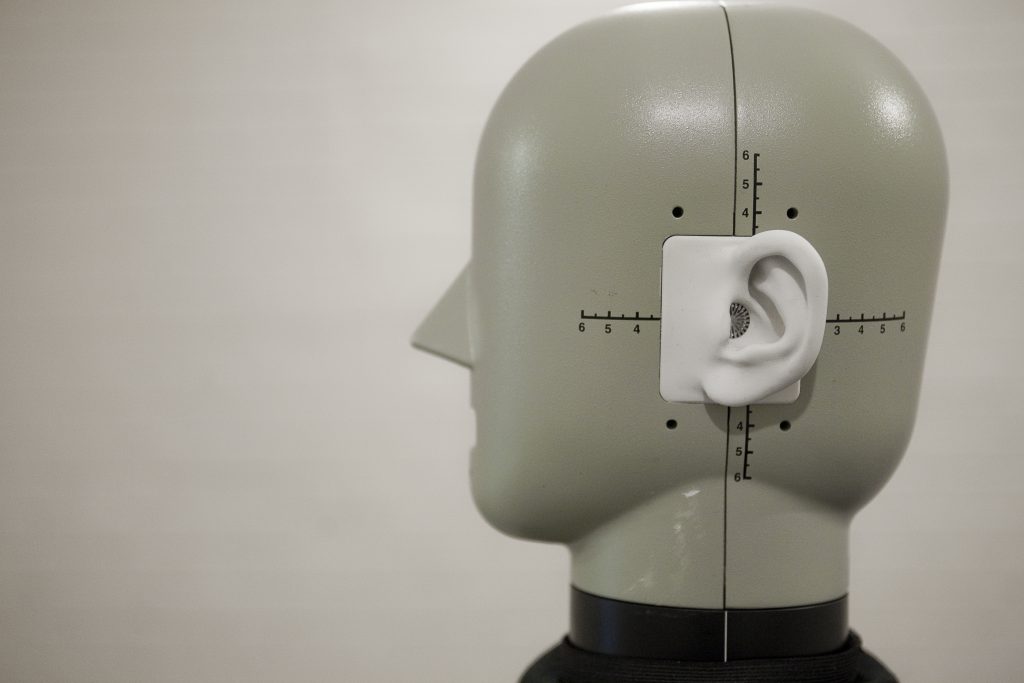Speaker: Antje Heinrich, Manchester Centre for Audiology and Deafness (ManCAD), University of Manchester, UK
Wed 20th November 12:00 – 13:00 UK time. This seminar will be held in person in Gilbert 1 and you can join us online via Microsoft Teams.

Abstract
Being able to communicate effectively is essential for many activities in life. Often communication takes place under conditions that are far from ideal for listening, i.e. where speech is not clearly enunciated and the background is not quiet. Instead, many listening situations contain background noise or reverberation, and/or the information is conveyed in an unfamiliar accent or foreign language. Being able to successfully navigate such situations is vital for successful communication and ultimately a good quality of life.
Even listeners in the most privileged position (young, without hearing loss, good cognitive function, listening in their native language) can find it challenging to listen in complex conditions. This is even more true for listeners who are not young, do have a hearing loss, experience some age-related changes in cognition, and/or are required to listen in a language not native to them. I will discuss how personal factors such as age, hearing, cognition, and linguistic status interact with the nature of the listening situation. In particular I will explore how much weight different listener groups put on auditory (bottom-up) versus cognitive and linguistic (top-down) cues in order to make sense of what they hear, and how this manifests itself in the use of very different listening strategies. I will also discuss what the consequences of using these different listening strategies are for listening effort and for the downstream processing of the heard information. Finally I will briefly touch on how we might be able to improve speech-in-noise listening by targeting some of the underlying processes in training programmes.
Biography
I am a speech scientist with a background in experimental psychology, neuroscience, acoustic phonetics, hearing sciences and clinical audiology. I work as a senior lecturer of Audiology and Hearing Sciences in the Centre for Audiology and Deafness at the University of Manchester. I combine interests in the theory-guided exploration of speech processing with clinical interests in better diagnosis and treatment for listeners with hearing loss. I am interested to better understand how different groups of listeners process speech – from the initial auditory signal to the final understanding of and response to the message. Much of my work focusses on younger and older native English listeners but I also investigate listening in non-native English listeners, listeners with hearing loss and hearing aid wearers.
